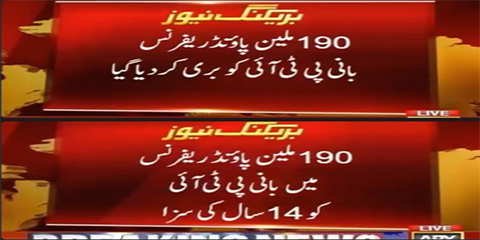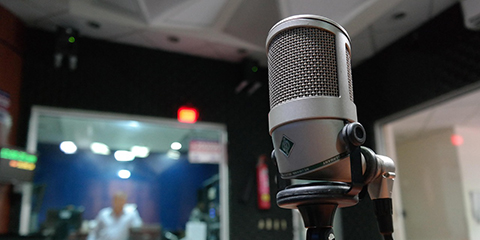From acquittal to 14 years: ARY's colossal blunder in high-stakes Imran Khan case
JournalismPakistan.com | Published last year | JP Staff Report
Join our WhatsApp channel
ISLAMABAD—In what has become an all-too-familiar scene in Pakistani electronic media, ARY News on Friday broadcast entirely contradictory news about former Prime Minister Imran Khan's verdict in the 190 million pound reference case. Within moments, viewers witnessed a dramatic shift from celebration to shock as the channel retracted its false report of acquittal and announced a 14-year sentence instead.
A Pattern of Negligence
This incident is not an isolated case but rather a symptom of a deeply rooted problem. The Pakistani electronic media landscape has witnessed numerous similar incidents that highlight a disturbing pattern of negligence. In May 2018, sixteen prominent news channels faced penalties for falsely reporting a court ban on political speeches. The year before that saw an even more egregious incident when 29 channels spread panic with fake news about a Lahore bomb blast. The pattern continued with nine channels facing fines for fabricating a plane crash near Rawalpindi, while Channel 92's irresponsible use of archived footage as breaking news caused significant damage to a school's reputation.
The Root Causes
The crisis in Pakistani electronic media stems from multiple interconnected factors. At the heart of the problem lies the tyranny of "breaking news" culture, where the pressure to be first overwhelms the fundamental journalistic duty to be accurate. This is compounded by insufficient fact-checking mechanisms within newsrooms and the relatively weak enforcement of existing regulations. Commercial pressures have created an environment where channels prioritize speed over accuracy, while inadequate training of news staff in verification protocols further exacerbates the situation.
The Cost of Misinformation
The impact of these journalistic failures extends far beyond mere reputational damage to news organizations. There has been a steady erosion of public trust in media institutions, creating a cynical and disengaged citizenry. False news reports have repeatedly triggered unnecessary panic and social unrest. Perhaps most concerning is the gradual degradation of democratic discourse and the increasing vulnerability of public opinion to manipulation.
Solutions and Way Forward
The path to reform requires a multi-faceted approach involving all stakeholders in the media ecosystem. Media organizations must fundamentally transform their operations by implementing mandatory verification protocols before broadcasting any news. This should include establishing dedicated fact-checking units and introducing reasonable delays in breaking news broadcasts to allow for proper verification. Substantial investment in journalist training programs and robust accountability mechanisms for editorial decisions are equally crucial.
For regulatory bodies like PEMRA, the challenge lies in strengthening their enforcement capabilities while maintaining press freedom. This could involve implementing a more nuanced system of graduated penalties based on violation frequency and requiring more prominent corrections for false news. The establishment of an independent media accountability council and the development of comprehensive media literacy programs for the public would further support these efforts.
The journalism community itself must undergo a cultural transformation. This means moving away from the "first to report" mindset toward a "first to verify" standard. Journalists need to develop stronger verification habits, including multiple source confirmation and proficiency in digital verification tools. Regular professional development and a renewed commitment to ethical journalism must become industry standards rather than optional extras.
The recurring pattern of fake news broadcasts in Pakistani electronic media represents a crisis of professionalism that demands immediate attention. While PEMRA's current system of fines and forced apologies serves as a deterrent, it hasn't proved sufficient to prevent recurring violations. The solution lies in a comprehensive approach that combines stricter regulation, improved newsroom practices, and a fundamental shift in broadcasting culture.
The credibility of Pakistani media hangs in the balance. It's time for all stakeholders to recognize that trust, once lost, takes years to rebuild. The future of informed democratic discourse in Pakistan depends on our ability to address this challenge effectively. Only through concerted effort and fundamental reform can Pakistani media rebuild its credibility and fulfill its essential role in democracy.

























